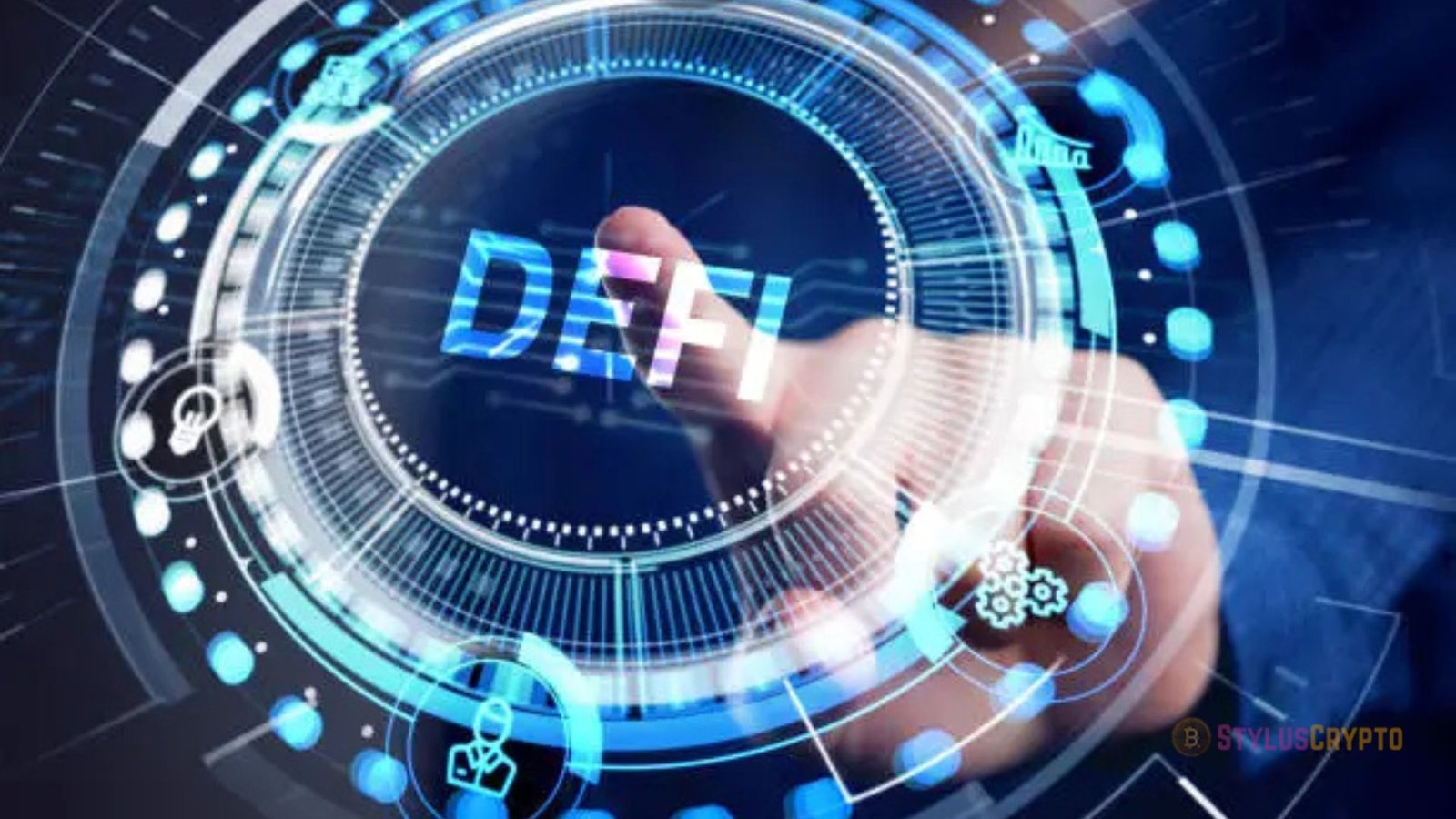One of the most revolutionary movements changing the face of finance is decentralized finance or DeFi. In contrast to the opaque, centralized, and overly complicated conventional financial institutions, DeFi offers a new viewpoint based on openness, accessibility, and decentralization. However, just what are DeFi’s benefits? Discover the incredible advantages of DeFi and find out why it is becoming popular so quickly throughout the globe in this article.
What is DeFi?
When people talk about “DeFi,” they’re referring to a group of financial services that don’t use banks or other conventional middlemen. Users will have greater agency over their money resources in this decentralized and transparent economy made possible by blockchain technology. Users are able to loan, trade, and earn interest on their cryptocurrency holdings using DeFi networks, all without the need for a central authority. With this foundational knowledge in place, let’s go further into the many benefits of DeFi.
The Key Advantages of DeFi
Financial Accessibility for All
Among DeFi’s many benefits, the expansion of access to banking services is particularly striking. Many people are unable to use traditional banking services because of factors such as their geography, credit history, or income level. Anybody with an internet connection through DeFi may access financial services.
Think of a farmer in a small town who lives far from any bank. Loans, savings accounts, and insurance may all be accessed through that person’s smartphone with DeFi. Underbanked or unbanked communities throughout the world can see a dramatic shift with this degree of financial inclusion.
Decentralization and Transparency
Blockchain networks, such as Ethereum, are the backbone of DeFi systems. Anybody may see and verify the transactions recorded by blockchain technology since they are all publicly visible on a ledger. Because of this openness, centralized financial institutions are less likely to have problems with corruption, fraud, and malpractice.
By removing intermediaries, DeFi facilitates peer-to-peer transactions, leading to a more fair financial system. Because no one entity controls the cash of users on these platforms, confidence in the system is enhanced because of its decentralized structure.
Reduced Costs and Higher Efficiency
The low price tag is one of DeFi’s main selling points. The processing periods and expenses for traditional banking and financial services can be rather lengthy. Foreign wire transfers, for example, might take days to clear and cost a pretty penny. By doing away with intermediaries, DeFi’s decentralized architecture reduces these expenses.
In comparison to more conventional payment methods, DeFi transactions are often quicker and cheaper. As a result, anyone can borrow, transmit, or receive funds extremely immediately and at rock-bottom rates.
Innovative Financial Products and Yield Opportunities
Before DeFi, regular investors couldn’t get their hands on some of the most cutting-edge financial instruments. One example of how DeFi is changing the investing landscape is yield farming, where users may earn incentives by lending or staking their crypto assets.
Pools of liquid assets are yet another example. Users of DeFi can pool their assets and share in the trading costs as a percentage. Unlike conventional financing, which requires a substantial initial investment, this presents a novel chance to earn passive income.
Ownership and Control Over Assets
When people utilize traditional financial channels, like banks or brokers, they typically relinquish some control over their assets. DeFi changes that by letting consumers keep full ownership of their digital wallet holdings.
By interacting with DeFi protocols directly from their wallets, users eliminate the need for a third party to manage their cash. Users are empowered to truly own their funds with this heightened degree of control, which is one of the major advantages of DeFi.
Open-Source and Community-Driven Development
The protocols used by DeFi systems are often open-source. Because of this, programmers from all across the globe may work together to make these systems better. The community’s quick invention and collaboration may be attributed to DeFi’s open nature.
Furthermore, DeFi encourages a sense of duty and ownership among its users due to its community-driven nature. A system that is examined and improved on a regular basis by a broad set of developers is more likely to have confidence and investment from people.
Smart Contracts and Automation
One major benefit of DeFi is the utilization of smart contracts. An agreement whose terms are encoded into code in a way that it may execute itself is called a smart contract. There is no need for human interaction because these contracts execute automatically when certain conditions are satisfied.
For instance, when it comes to conventional loans, borrowers are often required to interact with bank staff and follow a number of procedures. This is automated in DeFi via smart contracts, which makes loans safer and faster.
Practical Examples of DeFi in Action
To better understand the advantages of DeFi, let’s look at some practical applications:
Decentralized Lending and Borrowing
Users are able to lend their cryptocurrency holdings and earn interest. Platforms like Aave and Compound also give users the ability to borrow against their cryptocurrency assets. The entire process of lending and borrowing money is fully automated through the use of smart contracts, which guarantees both transparency and data protection.
Decentralized Exchanges (DEXs)
Users are able to trade cryptocurrencies without the requirement for a centralized exchange thanks to decentralized exchanges (DEXs) such as Uniswap and SushiSwap. Users are able to keep control over their assets, which reduces the likelihood of attacks on exchanges or improper management of assets.
Stablecoins and Payments
As a result of their pegs to fiat currencies, stablecoins such as DAI are less susceptible to price fluctuations. They play a significant role in the DeFi ecosystem from a payment perspective. When compared to typical payment methods, DeFi payment solutions provide charge reductions and significantly shorter transaction times.
Challenges in the DeFi Space
While the advantages of DeFi are numerous, it’s essential to acknowledge the challenges as well:
- Security Risks: Threats such as hacking, rug pulling, and smart contract vulnerabilities are present in DeFi. All of these things highlight how important it is to do your homework before putting your money down.
- Regulatory Uncertainty: Uncertainty for consumers and developers is caused by DeFi operating outside of regular regulatory frameworks.
- User Experience: DeFi platforms are notoriously difficult to operate, necessitating familiarity with blockchain fundamentals and crypto wallets. Newcomers may feel overwhelmed by this.
Further Read: Regulating DeFi: Decentralized Finance and Blockchain Challenges
Future of DeFi
The future of DeFi is bright despite the obstacles. Developers are working to fix scalability and security concerns, which means more users will use DeFi platforms. More sophisticated and safe solutions for the DeFi ecosystem are anticipated to be introduced by the continuing advancements in blockchain technology.
Final Thoughts
Beyond abstract concepts, the benefits of DeFi are tangible. This monumental change is ushering in a more accessible, open, and inclusive financial system. Users all around the world are discovering new possibilities thanks to DeFi, which offers decentralization, transparency, accessible finance, and creative goods.
Nevertheless, it is essential to comprehend the hazards and conduct a comprehensive study before making any investment or financial choice. By utilizing the distinct advantages that DeFi provides, individuals may seize command of their economic destiny and venture into uncharted territories in the dynamic realm of money.
FAQs
How does DeFi increase financial accessibility?
DeFi allows anyone with internet access to use financial services, reaching underbanked or unbanked communities globally.
Why is decentralization important in DeFi?
Decentralization in DeFi removes intermediaries, promoting transparency and reducing risks like fraud and centralized control.
What are smart contracts in DeFi?
Smart contracts are self-executing agreements on blockchain that automatically enforce terms, making DeFi transactions efficient and secure.


